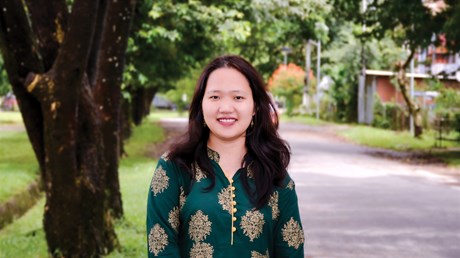Why I embraced it anyway.

Growing up in India, I never imagined I would end up following Jesus Christ. I belong to the Adi tribe, one of the indigenous tribes in the state of Arunachal Pradesh, located in the remote, far northeast part of the country. Members of my family practiced a traditional animistic religion that was popular in our culture.
I considered myself an omnist—someone who believes in all religions. On some level, this even included Christianity. Before my conversion, I occasionally went to church services at the invitation of friends and I would celebrate holidays like Christmas. I also frequently read a Gideons New Testament Bible.
But all the while, I kept idols of all the deities, including the Hindu gods, Buddha, and Jesus Christ. And I visited a variety of places of worship: Hindu temples, a Buddhist monastery, and a gangging, where Adi people pray to a god called Donyi-Polo (in the Adi language, donyi means sun, and polo means moon).
Afraid of Hell
In 2008, a friend invited me to join an evangelistic youth camp organized by the Jawaharlal Nehru Evangelical Union, an organization affiliated with the Union of Evangelical Students of India. I cannot recall all the things I learned at the camp, but I remember asking one of the speakers whether a non-Christian can find a place in heaven. He replied that one can only enter the kingdom of heaven by accepting Jesus Christ as one’s personal Savior.
As someone who had read parts of the Bible before, I was familiar with stories of God throwing all who did not believe in him into hell on the final Day of Judgment. And I was scared of being tormented in a fiery place for all eternity. Driven by a desire to escape that punishment, I decided to accept Christ as my savior. In hindsight, ...
from Christianity Today Magazine
via


.gif)

.gif)
.gif)
